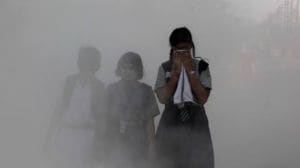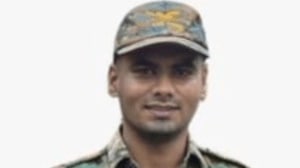Key players in Washington next week to seal N-deal
Both sides move to clinch 123 agreement; Cabinet will take up today proposal for India to join CSI

Looking to attain closure on the 123 civil nuclear cooperation agreement in the upcoming round of negotiations in Washington, Prime Minister Manmohan Singh and US President George W Bush spoke over phone today, giving hope that both countries can firm up a bilateral agreement to coincide with the second anniversary of the landmark July 18 agreement.
With time running out for the Bush Administration to see this deal through before the US President completes his term, both sides will field at this meeting almost all key actors involved in the July 18 talks two years ago to hammer out an understanding on the 123 agreement. The talks are slated for July 16-18.
Department of Atomic Energy (DAE) head Anil Kakodkar will accompany National Security Advisor M K Narayanan and Foreign Secretary Shiv Shankar Menon to Washington. Indian Ambassador to US Ronen Sen, another key negotiator, will be part of the talks. In fact, he was in Delhi last week for consultations. US Ambassador to India David Mulford is also flying back to participate in this all-out effort to finalise the agreement.
While Singh and Bush have given the political push ahead of the talks, New Delhi plans to send out another important signal tomorrow when the Cabinet will take up the proposal for India to formally join the Container Security Initiative (CSI).
After nearly three years of discussion at various levels, the Cabinet is expected to approve the signing of declaration of principles and the basic implementation procedure for the CSI with the US. This is one of the key counter-proliferation programmes of the Bush Administration after the 9/11 attacks.
Though the right atmospherics are in place for the talks, the key hurdle in the 123 talks of US extending India the right to reprocess spent fuel still remains unresolved. While this is an absolute must for India, given that the PM made this commitment in Parliament, American bureaucracy continues to grapple with the reality that a blanket “programmatic consent” has not yet been given even to Russia and China.
Barring EU and Japan, US only gives “case-by-case consent” for reprocessing to other nuclear powers. But with Bush displaying a sense of ownership for the deal, Indian hopes rest on a political decision from White House.
The second issue holding back the agreement is US reluctance to assure that it will not demand return of US-origin fuel in case the agreement were to terminate if Indian tested a nuclear device in future. New Delhi has argued that this is against Washington’s March 2 commitment for permanent guarantee of fuel supplies.
Narayanan will be focusing on this issue in his talks with US counterpart Stephen Hadley. It was both the NSAs who had worked out an US assurance of permanent fuel supplies in return for India accepting in-perpetuity safeguards for its civilian nuclear reactors.
In sum, both sides are going all out to reach an understanding. Following the conversation between Singh and Bush, the PMO, in fact, stated: “The two leaders spoke about the forthcoming discussions between the National Security Advisors of both countries, scheduled for next week. They were of the view that these discussions will reinforce our strong bilateral relations.”




- 01
- 02
- 03
- 04
- 05



























